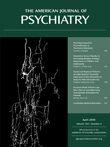The farce of our phenomenal family was fabricated by Mommy—fueled by her fundamental desire to save face. “Whose face?” we wondered aloud. “Life’s no fairy tale, but families fake the funk anyhow,” she said. Fragile, tiny, preteenage egos failed to challenge such witty logic. Our frets about appearing “fat” or “foolish” or “foggy” or “fake” or just “not normal” funded her farce. The fear of being found out caused us to forego, at a family member’s insistence, the medications that our doctors believed would make us better. And so “normal,” “nice,” “not standing out,” and “social acceptance” were pursued fervently while we flippantly dismissed our obvious frailties—symptoms that could rapidly be fixed with fluoxetine, fluvoxamine, or 40 or 50 more fabulous finds.
We repeated the adult’s logic to each other. Sissy, you told me to pull myself up by my bootstraps, words you heard from Nana. But you added your 15-year-old logic—flip the flashbacks off with a beer and some blunts, like you had done. Forge ahead with recreations that artificially pause my pain—booze, weed, and X. I could not pause. I could not forge ahead either until I stumbled upon drugs after I was grown. I got on drugs—physician-prescribed, FDA-approved medicines. The tears ceased and my smile returned. I listened. I worked. My confidence boomed. I had no idea that would be my faux pas. I became the thorn in my family’s side. How ironic, you stumbled upon me enjoying my day and looked into my medicine cabinet and judged me. (Is trespassing a crime?) You saw that I was better and ridiculed me for needing meds. My medicine screamed that we were not perfect, that they were not perfect.
After each verbal accost with Daddy, I would stop medications and be catapulted into the depths of despair. Thankfully, I finally found the strength to stand alone. The yoke was broken. I was no longer bound. I was free from opinions formed about me and my medicines. I was enjoying fireflies, Friday night movies, and fish fries with healthy friends in their healthy minds. I was not on the fast track anymore—no flight of ideas or fast buys or foolish cries after furious insults that resulted in.... I shudder when I remember. I was on a “natural” high courtesy of—you guessed it—my doctor-prescribed stimulants to treat my doctor-described ADHD/whatever-the-new-psychiatry-resident-calls-it-this-month. My brain off prescribed, FDA-approved drugs was not free. And it definitely was not me. It was a mind bound by opinions, fears, and films.
You grew famous for being foolish. I wanted to share my peace with you and my joy. But you declined. Life happened. It splattered in your face, your lover’s face, and your family’s faces too. So sadly ironic. I got better. But you became furious. Funny how fame for being foolish can find you when you fear it most. Yes, you are a star now. And your starring role featured a ferocious, fretful, fake unmedicated fogy that never became her divine self. Your lackluster performance might have been forgivable and forgettable. Except that your bizarre behavior bled on me and others so numerous that I cannot count.
You are dead, and you pulled the trigger. And the stains, they will not come out of your son’s mind who found you and my mother’s heart that birthed you. So I remember you. Your boss remembers you. Your teacher remembers you. And your poor son—he remembers you too and all that blood. (Who did you think would find you, Sissy?) And he wonders what he did to make you that sad. Was that not what you were trying to avoid? You thought if you were dead, you could not screw up his life. But you managed. Sissy, only you could find a way to screw up lives from the grave.
Your life has been a satire—no, a Shakespearean tragedy. Your movie is now showing in the theater of each and every member of our family. And they keep rewinding and playing it again and again with the “what if” versions. After you died, they gathered around your casket to “watch your life” in this silly eulogy. You were never as great as they made you out to be at the first viewing. They finger brushed out all of your flaws and put you right up there with St. Peter. It would have been quite amusing if we were not so sad for your son.
Now they wish they had helped you get on medicines. But they were the reason you unwisely snubbed counsel for medicines while you secretly self-medicated with drugs. They blamed your friends and the crowd you hung with and did not own up to any of it. But I challenged their delusions. When did Prozac and Depakote become more stigmatizing than weed and hard drink? Daddy drank beer to excess on the night of your first counselor’s visit and proclaimed, “No child of mine is crazy enough for meds!” He thought that medicines wouldn’t make you bulletproof. But I challenged that the right ones probably would make you suicide proof. Tears welled up in his eyes before he walked out of the room. He knew I was right.
The cost of your “drama” to prove that I was right to Daddy overwhelms my heart with sadness. The fees of its production have been colossal. Your potential, your smile, your life was the price paid to destigmatize my medications in Daddy’s eyes. “Outright foolishness,” in Granny’s words. The currency we exchanged to watch the performance of your tragic tale was exorbitant. I want those nights, those tears, and those years refunded—IN FULL. And my nephew wants his mommy back, flaws and all. In your words, “His life has been no fairy tale.”
This narrative is fictional but was inspired, in part, by a patient encounter.

